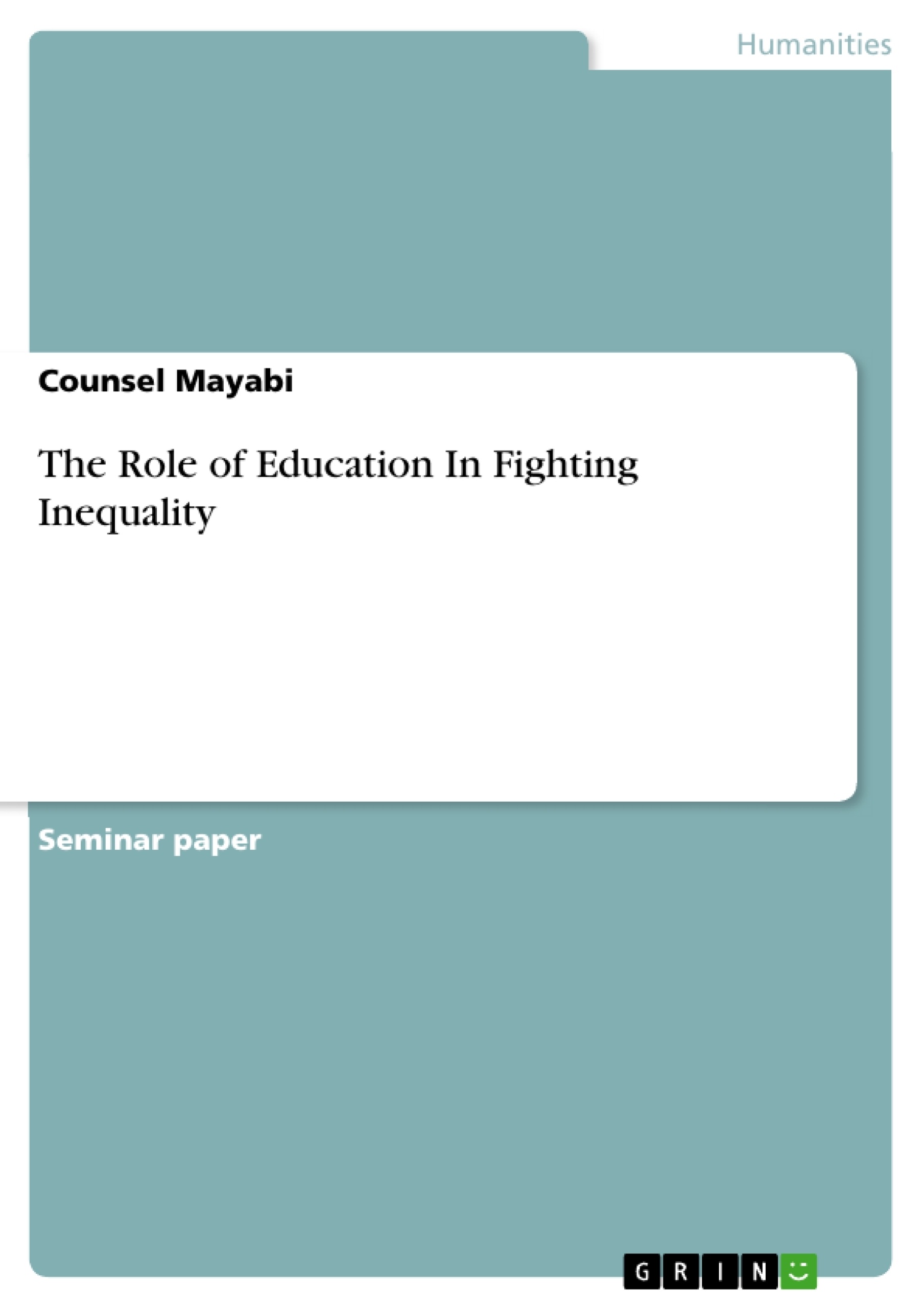The presence of unequal opportunities and incentives for varied social statuses in a community or a state sums up my definition, which is open to debate, of inequality. These include the unequal distribution of resources and the distribution that is based on already established patterns that have been socially defined. In this context, there are categories of people in a given society and resources are distributed based on the category into which the people fall.
Because of the inequalities in the society, the people at the upper classes would be always ahead of those in the lower-class. Those at the lower-class will therefore find it hard to abridge the wide gap between the classes. Some have said that education is the only way up the social ladder. A few however, refute the claim that no one needs to be educated to avoid poverty. That is education is no guaranteed solution for the inequalities
They say, we cannot run to education as the only solution to poverty. Going to institutions of higher learning to find a way out of poverty or social problems should be out of anyone’s mind (Marsh, p12). However, such mentality is not in its entirety justifiable as the power of education cannot be underestimated. Education may not be the only way out, but at least it has a bearing on the overall call for equality. Having said this, my paper finds out and its main purpose is to provide a justification that education may be in one way or another, a way out of inequality and poverty as would be argued in the rest part of this paper.
Inhaltsverzeichnis (Table of Contents)
- Introduction
- Forms of Inequality
- Political Democracy and Social Inequality
- Some Measure Of Equality Is Necessary And Desirable
- That The Resolution To The Problem Of Widening Inequality Lies In Expanding The Field Of Educational Opportunity
Zielsetzung und Themenschwerpunkte (Objectives and Key Themes)
This paper seeks to justify the claim that education can contribute to reducing inequality and poverty. It explores the various forms of inequality in society, analyzes the role of political democracy in promoting social equality, and argues that expanding educational opportunities is crucial for addressing the problem of widening inequality.
- Forms of Inequality
- Role of Education in Achieving Equality
- Political Democracy and Social Equality
- Importance of Expanding Educational Opportunities
- Social Justice and Education
Zusammenfassung der Kapitel (Chapter Summaries)
Introduction
This section introduces the concept of inequality, defining it as the unequal distribution of resources and opportunities based on socially defined categories. The author argues that while education is not the sole solution to inequality, it plays a significant role in addressing the issue.
Forms of Inequality
This chapter delves into various forms of inequality prevalent in society, including disparities in job opportunities, income, access to healthcare, and political participation. The author highlights the impact of social stratification and the unequal distribution of resources on different social classes, particularly low-income families.
Political Democracy and Social Inequality
This section examines the relationship between political democracy and social inequality. It explores the argument that political democracy, with its emphasis on political equality, has contributed to a more balanced social system. The author also discusses the potential limitations of this approach, particularly in cases where the upper class controls the means to political power.
Some Measure Of Equality Is Necessary And Desirable
The author emphasizes the necessity and desirability of some measure of equality, advocating for equitable access to education, healthcare, satisfying jobs, and political participation for all. The chapter also highlights the potential consequences of increasing economic inequalities.
That The Resolution To The Problem Of Widening Inequality Lies In Expanding The Field Of Educational Opportunity
This section argues that expanding educational opportunities is crucial for addressing the issue of widening inequality. The author emphasizes the role of education in promoting social justice and achieving a fairer society. The chapter also addresses opposing views that suggest education alone cannot eliminate inequality.
Schlüsselwörter (Keywords)
The main keywords and focus topics of this text are: inequality, poverty, education, social justice, political democracy, access to resources, social stratification, economic inequalities, educational opportunities, and social equality.
- Quote paper
- Counsel Mayabi (Author), 2014, The Role of Education In Fighting Inequality, Munich, GRIN Verlag, https://www.hausarbeiten.de/document/292791


